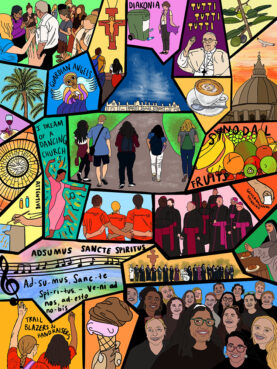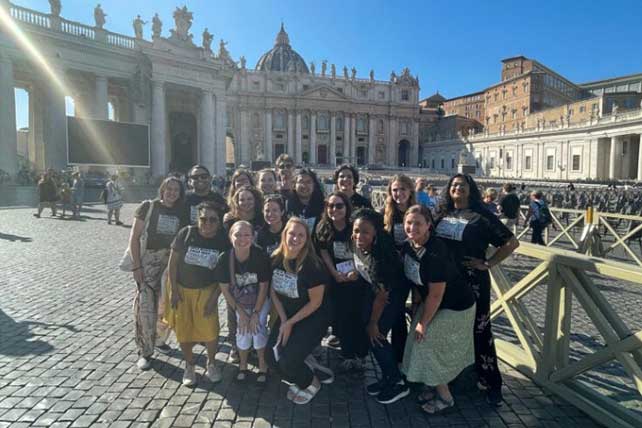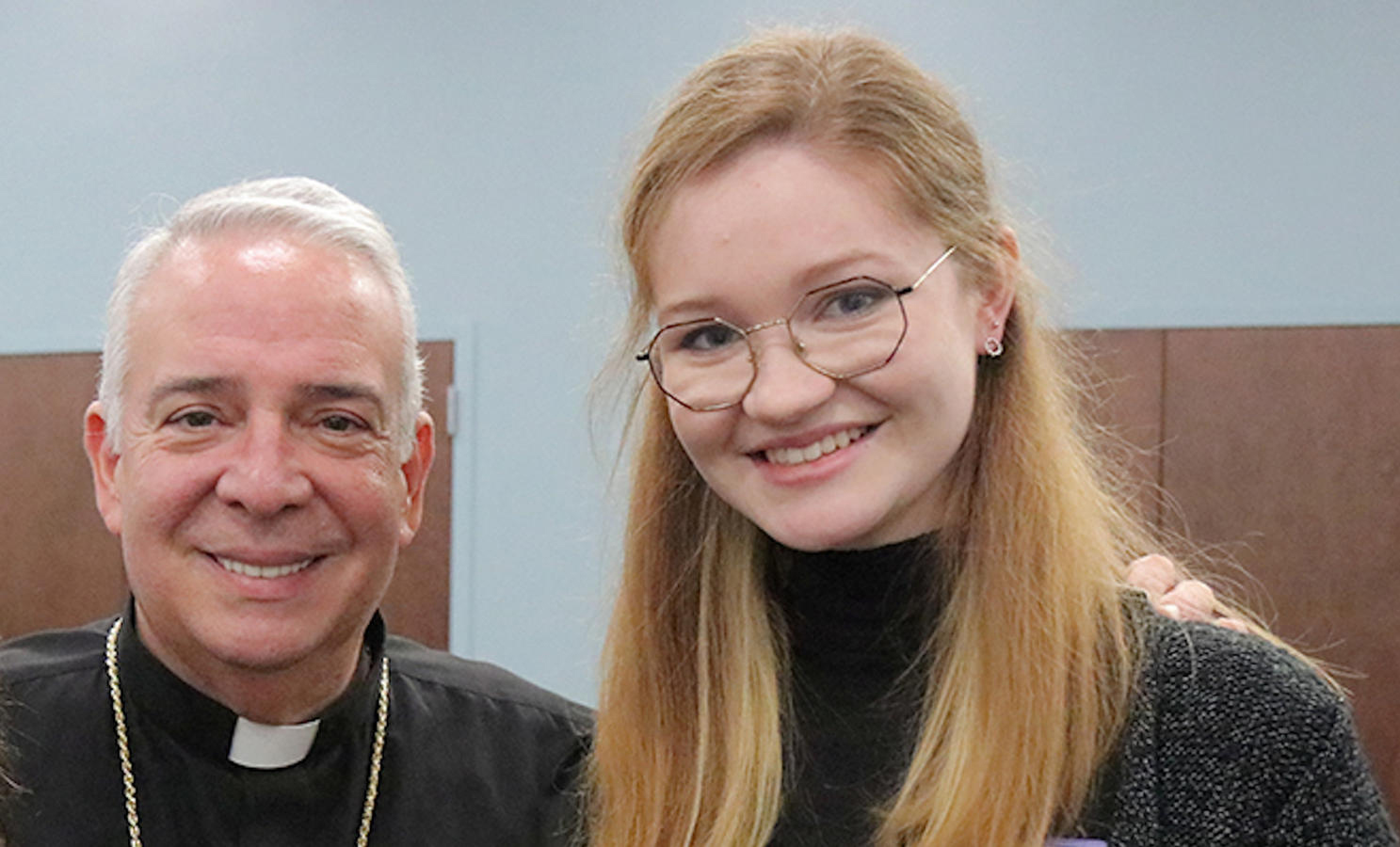(RNS) — When Julia Osęka met Pope Francis at the Synod on Synodality in October, the 21-year-old junior at St. Joseph’s University in Philadelphia asked the pontiff what had motivated him to invite young people to participate in the global meeting of the Catholic Church. Francis smiled and answered, “To make a mess,” Osęka recalled.
“I absolutely erupted in joy when he said that,” Osęka told Religion News Service. “We tried our best in the synod, and though chaos may emerge in the process and it may be hard, we have to trust that the Holy Spirit is leading us toward a new harmony.”
Osęka, one of 10 voting members from the United States and Canada of the synod who were not bishops, was also the youngest synod delegate and one of just 54 women. A physics major originally from Poland, she had been working in St. Joseph’s campus ministry in 2021 when Francis called the synod. She emerged as a student leader, representing her school in a coalition of Catholic colleges in the Philadelphia Archdiocese that drafted student voices into the synodal process.
RELATED: For LGBTQ Catholics, New Declaration on Blessings Is Welcome—But Complicated
In 48 listening sessions held by the coalition’s 14 colleges and other Catholic campus organizations, students expressed their visions, in words but also in artwork, for how the Catholic Church could be better connected with their lives.
Philadelphia Archbishop Nelson Pérez, left, and Julia Osęka at SCHEAP discernment gathering at Neumann University on Jan. 24, 2023. (Photo by Sarah Webb/Archdiocese of Philadelphia)
Known as SCHEAP, for Synodality in Catholic Higher Education in the Archdiocese of Philadelphia, the coalition “used the synodal model of creating spaces, of active listening and really inviting people to be protagonists in the processes of discernment, listening to what the community really desires and needs,” Osęka said.
“A lot of people have been leaving the church because they feel like they cannot fit the expectations, they feel out of place. That’s why this is incredible, because the church has said it wants to hear from you, from young people, LGBTQ people, women,” said Melanie Guckin, a junior at La Salle University and a leader at SCHEAP’s listening sessions.

“Glimpses of God” by Synod animator Becky McIntyre. (Image courtesy of Becky McIntyre)
Traditionally a gathering of bishops called to decide issues of doctrine, administration or application, the church synod has been more broadly understood under Francis as a way to include the ideas of all the baptized. In the first year of the Synod on Synodality, those ideas were gathered from local events like SCHEAP’s from around the world. These were shared with each nation’s national conference of bishops, then with continental assemblies, before being submitted in a report synthesizing the perspectives.
“What was really exciting was that some of the lines from the Vatican’s synthesis document were verbatim to what came out of our meeting in Philadelphia. That is such a great testament that our voices are being heard,” Guckin said.


